Tags
ad Diwaniyah, clay tablets, Dorothea Braby, EPIC, Erech, Frank Lawrence Lucas, Gilgamesh, Golden Cockerel Press, Hebrew Bible, London, Luise Putcamp jr, Nippur, Pu-Abis, Sumerian, Ur, Urak, Ziusudra
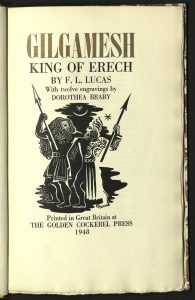
“The white-haired Ziusudra gazes dreaming out to sea.
Above his white head, the tall palms dream also,
Undulating slowly the green indolence of their leaves.
The old man remembers
Long days, long since, when he watched other waves
Heaving like these, heaving onward eternally,
Yet never breaking
On any earthly shore;
For earth itself lay drowned.
Now he watches them breaking for ever,
Like the years;
The blue of his old eyes changes no more
Than the blue of ocean,
And his hoar locks blow like its foam.
Almost as ancient he seems as the rock of granite,
Of red granite, where he sits above the sea.
Yet still his immortal soul regrets
The brief years of his mortality.”
Gilgamesh, King of Erech
Frank Lawrence Lucas (1894-1967)
London: Golden Cockerel Press, 1948
PR6023 U3 G5 1948
The story of part man, part god hero Gilgamesh was first recorded on clay tablets well before 2000 BC. Gilgamesh was a historical king who reigned circa 2700 BC, the fifth in line of the founding first dynasty of Ur, centered around the ancient city of Urak, known in the Hebrew Biblle as Erech. The historical Gilgamesh built one of the first temples in the holy city of Nippur, now ad Diwaniyah, which is where two of our clay tablets are from. This edition is a free translation of the Sumerian epic of Gilgamesh, with twelve engravings by Dorothea Braby. Edition of five hundred copies, numbered. University of Utah copy is no. 263.
Excavations at Ur
Pu-Abis Burial Pit
No time, no tomb can hide what we have been.
See what the searchers have uncovered where
Hills are laid low in long-abandoned air,
Centuries swiftly sifted through a screen.
Bay leaves in circlet, gold instead of green,
Carnelian that this river land called rare,
Lapis bought dearly with some distant ware
Crown a crushed skull. Surely here lay a queen.
That future digger who can read the dead,
Build dynasties from what the past discards,
Dust and a different sunlight on his head,
Shaking my grave for artifacts and shards
Will bare no gold bedecking this brown bone
And rightly call a commoner’s skull my own.
———–
Clay Tablets
Molded like primal man from lumps of mud
And pressed with dents peculiar to old needs
The tablets tell of gods’ outlandish deeds,
Record the names kings bore before the Flood.
Now tufted hills lie where the city stood.
The kings eat endless earth and the wind feeds
On eyeless gods. The river stirs far reeds.
The clay alone survives long solitude
And even now some men can read its signs.
The double strokes say water, and the star
Signifies heaven. All the fragile lines
Hold meaning that millenniums fail to mar
While in a familiar alphabet my words
Today go meaningless as marks of birds.
–Luise Putcamp jr., 1964
Excavations at Ur published here by permission of the poet to whom we wish a happy 94th birthday.

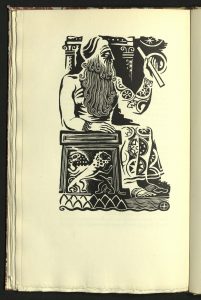
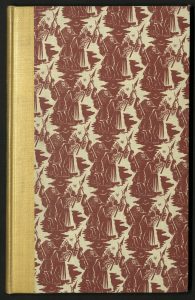
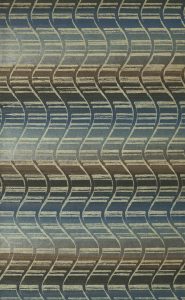
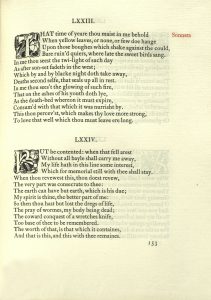
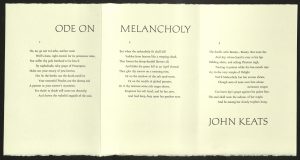
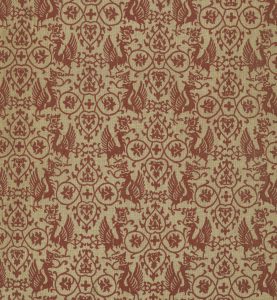
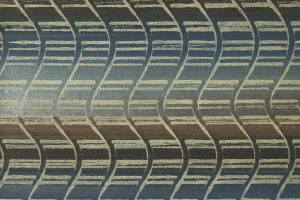
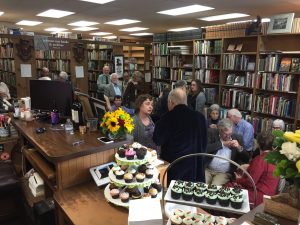
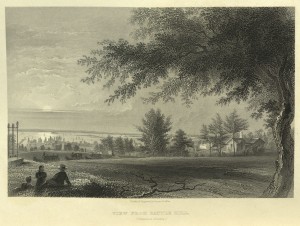
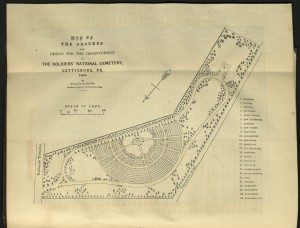
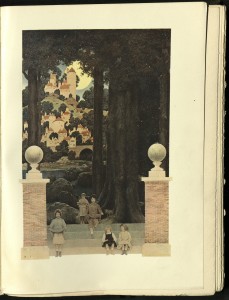
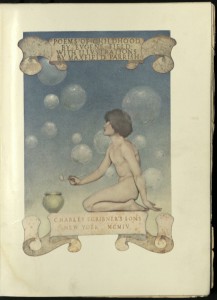
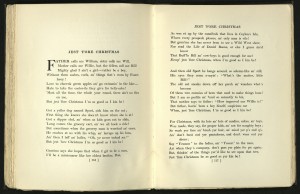
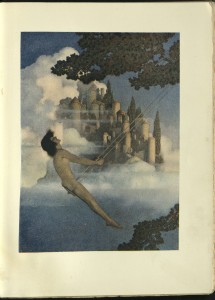

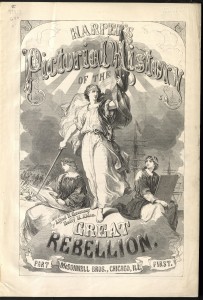
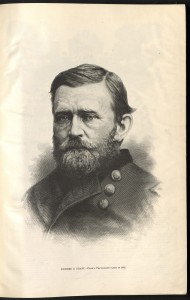
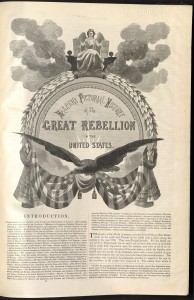
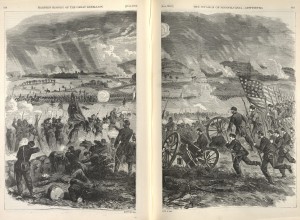
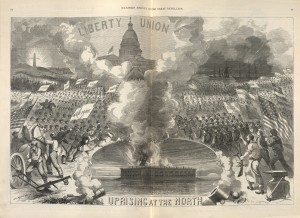
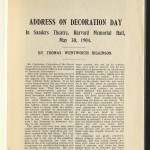
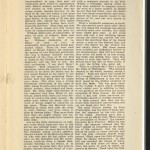
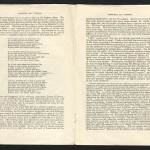
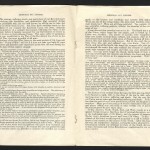
You must be logged in to post a comment.